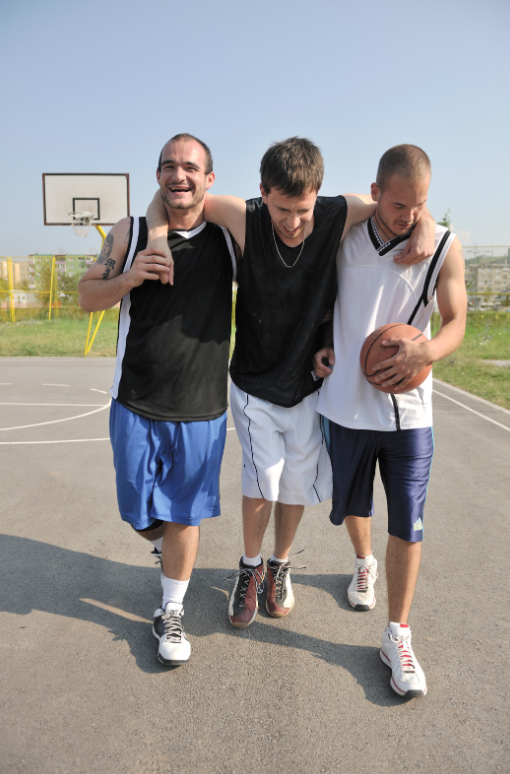After Going Through Legal Hoops, Fed’s Worker Comp Case Rebounds
By Frank Ferreri, June 10, 2024
Anyone who’s hooped it up on the hardwood or the playgrounds for years and years has probably felt the aches and pains that come with being a middle-aged baller.
For a 57-year-old airway transportation systems specialist, however, a pesky basketball injury threatened his Federal workers’ compensation case in C.B. and Department of Transportation, Federal Aviation Administration, No. 21-0323 (ECAB April 18, 2024). Nevertheless, his use of the stairs while traveling for work offered backing for his claim.
The specialist filed a traumatic injury claim, alleging he sustained left knee and ankle injuries while on temporary duty. On the CA-1, the specialist’s supervisor acknowledged the injury happened in the specialist’s performance of duty.
While being treated for the injury, the specialist said he injured his left ankle and knee the prior day while playing basketball, leading the agency to controvert the claim on the basis that the specialist was not in the performance of duty at the time of the injury.
The specialist submitted his doctor’s report, which stated he twisted his left knee and ankle while exercising, had undergone a left knee arthroscopy meniscectomy five or six years prior, and was asymptomatic until the day at issue.
The specialist submitted a statement that he injured his left knee and ankle while climbing six flights of stairs to his room from the hotel exercise facility early in the day and that he reinjured his left knee and ankle while shooting hoops in a fitness center later that evening. The specialist related that he was on travel status for training at the time of the injury.
In response, the agency said the specialist’s job was not associated with any physical fitness or medical requirements. Also, he was not participating in a supported or sponsored after-work activity at the time of the injury.
OWCP denied the claim. A representative of OWCP’s Branch of Hearings and Review affirmed the decision over the specialist’s argument that he was a rescue climber, had to maintain a level of physical fitness, and the agency was aware of it. Thus, the specialist appealed to the Employees’ Compensation Appeals Board.
The Applicable Law
The Federal Employees’ Compensation Act covers an employee 24 hours a day when the employee is on travel duty status and engaged in activities essential or incidental to such duties. The “general rule” regarding coverage of employees on travel duty status or temporary-duty assignments is that an employee whose work entails travel away from the employer’s premises is considered to be within the course of his employment continuously during the trip, except where there is a “distinct departure” on a personal errand. For an injury to be “in the course of employment,” ECAB has held that it must occur:
- At a time when the employee may reasonably be said to be engaged in the agency’s business;
- At a place where the employee may reasonably be expected to be in connection with his employment; and
- While the employee was reasonably fulfilling the duties of his employment or engaged in something incidental thereto.
ECAB found that the specialist met his burden of proof to establish a traumatic incident in the performance of duty on the day in issue. ECAB noted:
- The specialist injured himself on the stairs in his hotel.
- The specialist’s activity at the hotel was reasonably incidental to the duties of the temporary assignment contemplated by the agency.
Because OWCP didn’t previously reach the question of whether the specialist sustained an injury causally related to the employment incident, ECAB sent the case back for a new decision.
The Takeaway
ECAB emphasized FECA covers an employee 24 hours a day when the employee is on TDY status, with that coverage disappearing when the employee engages in something that is not “reasonably incidental” to the duties of the temporary assignment.
In this case, going up and down stairs at a hotel was reasonably incidental to the specialist’s travel status due to agency-required training. Had it strictly been a basketball injury, it’s difficult to say how ECAB would have come down, and it would take more consideration of the evidence and applicable law to flesh out that case.
However, the “reasonably incidental” part of the ECAB’s conclusion in this case makes sense and provides a guideline to work with it: If an injury happens and that injury goes along with the employee’s assignment at hand, it could make for an easy layup of a workers’ compensation claim. info@FELTG.com

